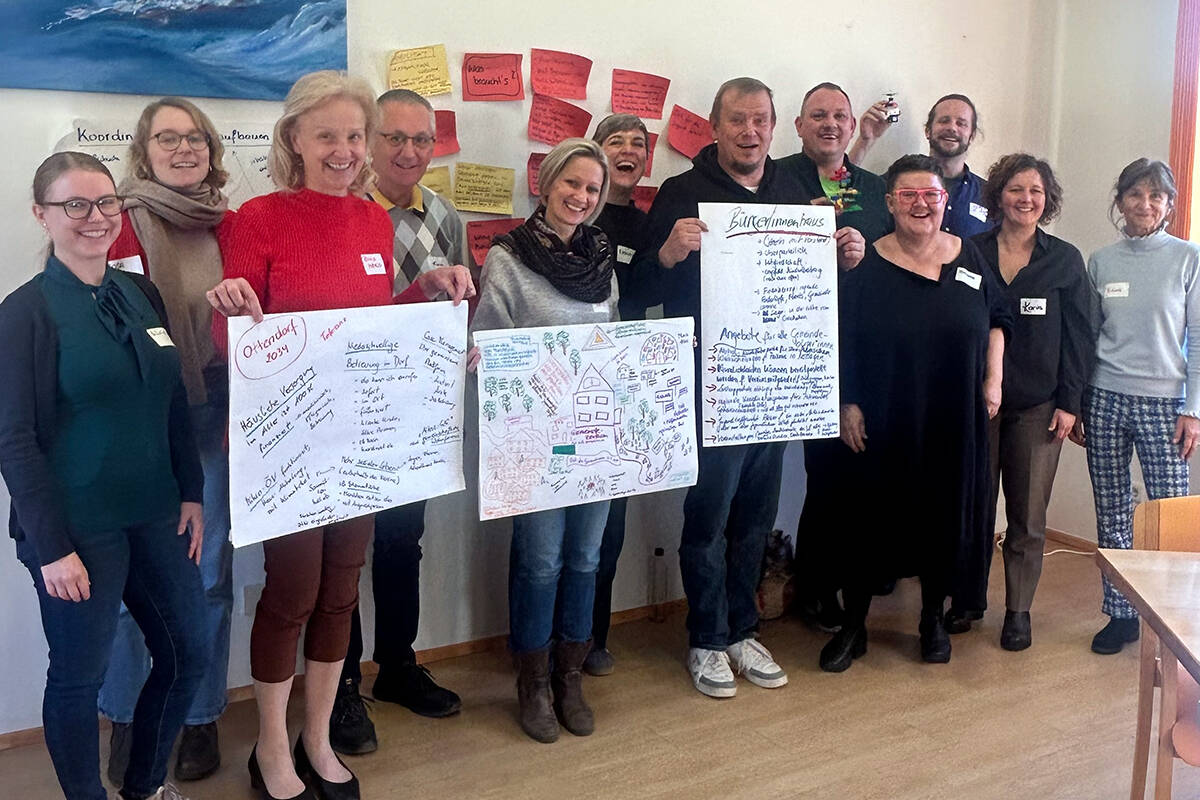Care councils for planning and coordinating local care structures.
Background
Tackling caregiving challenges in a sustainable way requires active participation and the inclusion of diverse stakeholder perspectives. Care Councils offer an excellent solution here. They bring together various actors at the local or regional level in a setting where people are motivated to seek solutions together. "Care" is used as an umbrella term in this context. It covers various caregiving activities and many associated aspects.
Care Councils support communities and neighbourhoods in handling pressing challenges (e.g., inadequate local services, limited mobility options, caregiver burnout, loneliness, etc.). They raise the visibility and recognition of all the work people do for the community, help to form new alliances, strengthen cohesion, and foster a sense of belonging within towns or neighbourhoods.
Project Content and Goals
Care Councils help devise and establish support, caregiving, and service structures at the local level (e.g., municipalities, regions). Those directly affected, alongside a broad range of stakeholders, are heard and given a voice. This includes professionals from nursing, social work, responsible policymakers, citizens with support needs, their families, and anyone else interested in the process.
Care Councils also engage individuals whose contributions are often overlooked but are critical to communities, such as neighbors, residents with extensive networks, and professionals who interact with many people (e.g., hairdressers, bus drivers, restaurateurs, teachers).
In this project, we are creating concepts, guidelines, and a toolkit for implementing Care Councils. The goal is to create change on two levels. First, we want to improve access to municipal infrastructures for caregiving, support, and social participation. Second, we want to create a new culture of caregiving that – in addition to the family – more strongly involves the neighbourhood and the community.
We pursue a transformative approach based on four key criteria:
- Development and design of democratic, participatory negotiation processes between municipal service providers, caregivers, and care recipients.
- Restructuring caregiving relationships by reducing reliance on traditional family structures and promoting collective responsibility alongside individual households.
- Better balancing paid and unpaid caregiving and support services.
- Reducing the unequal distribution of caregiving responsibilities.
Methods and Approach
We employ a collaborative action research methodology, bringing together relevant stakeholders and experts on caring communities, healthy neighbourhoods, and civil society care initiatives to consolidate their knowledge and experiences into sustainable solutions. A central element in this process is the creation of coordinated implementation concepts for Care Councils.
Drawing inspiration from the Care Council established in Kaltenleutgeben in 2023, we initiate and scientifically monitor three Care Councils. The entire implementation procedure is thoroughly evaluated, taking into account ethical, political, and economic considerations. The tasks involved, the spatial dimensions, and the current and desired types of caregiving relationships are all thoroughly discussed. The insights gained help refine the implementation of the concepts and form the basis for a freely available toolkit, which includes the core concept, best practice examples, information on the theoretical framework, and other resources.

Downloads
Funding

You want to know more? Feel free to ask!
Department of Social Sciences
- Universität Wien, Institut für Soziologie
- GÖG Gesundheit Österreich GmbH

